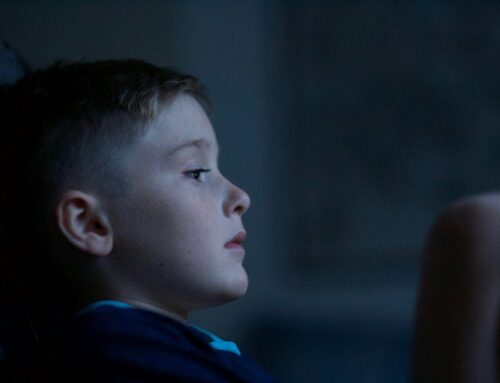Anxiety is an extremely common mental illness that affects over 4 million children between the ages of 3-17 in the U.S. alone. However, this disease can look different depending on who it affects. This can make the symptoms of anxiety difficult to recognize at times. If you have been questioning whether or not struggles your child experiences might be related to anxiety, keep reading.
Overthinking Small Tasks or Decisions
Does your child overthink small tasks or drag their feet in completing them? This can be an underlying sign of anxiety. Putting an extreme amount of planning and preparation into small tasks such as homework, spending time with friends, or leaving the house for the day can be exhausting. Anxiety can cause teenagers to over-plan so that they eliminate anything unexpected.
Lashing Out At Support System
Occasionally, if you try to reach out to your child, you might be met with a less-than-appreciative tone or lashing out. This isn’t your or their fault – and can be a direct correlation to their anxiety hard at work. Many people with anxiety avoid turning to their friends, families, and even doctors for help when they need it. Instead, it can be common for those suffering to criticize their support system or condemn them.
Trying to Distract Themselves From the World Around Them
The world can be overwhelming if you suffer from anxiety. As a coping mechanism, those suffering from anxiety might try to dissociate with reality and distract themselves from the world around them. This might provide temporary relief, but it does not fix the root of the problem and is not considered a healthy coping strategy for anxiety long-term. If your child dives into a TV show, book, or video game for most of their free time, it might be a coping mechanism to deal with their anxiety.
Avoiding Help
Those who suffer from anxiety can find great relief from talk therapy, which is a common tool to manage anxiety. Discussing healthy ways to cope with a licensed provider can help those suffering analyze their symptoms and find productive ways to cope. NeuroBehavioral Associates is able to provide an in-office consultation for anyone who wants more information prior to committing to treatment, as facing symptoms and agreeing to help can be extremely overwhelming.
Unsure If Your Child Has Anxiety? Sign Up For a Comprehensive Neuropsychological Evaluation
Signing up for a comprehensive neuropsychological evaluation might be the next step if you are unsure of your ability to recognize your child’s symptoms. Relying on a professional to help is a mature and responsible thing to do. During the evaluation process, your provider might assess a few of the following areas to ensure competency:
- Attention and Concentration Abilities
- Fine Motor/Visual Motor Skills
- Verbal and Visual Learning Skills
- Memory Skills
- Executive Function Skills
- Social/Emotional Functioning
How Do You Know If Your Child Qualifies?
There is no harm in seeking help if you feel as though you need it, and recovery is not a one size fits all approach. Therapy can be offered in an individual setting or in a group setting with the entire family. Group sessions can be especially beneficial for parents who are trying to support their children through any of the symptoms listed above. These symptoms can directly impact family relationships and everyday life functioning, making it imperative to seek treatment early on.
We hope this article helps you understand the common symptoms of anxiety. Remember, anxiety is not a one size fits all disease. If you’re worried that you’re neglecting your child’s anxiety symptoms, contact NeuroBehavioral Associates today to schedule an evaluation or find other treatment resources.
Sources:
- 5 Mistakes So Many of Us Make When Navigating Anxiety – Psych Central
- 5 Signs Your Anxiety is Spinning Out of Control – Healthline
- Anxiety Disorders – NAMI: National Alliance on Mental Illness





